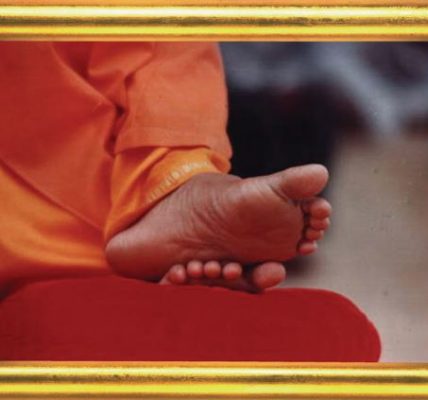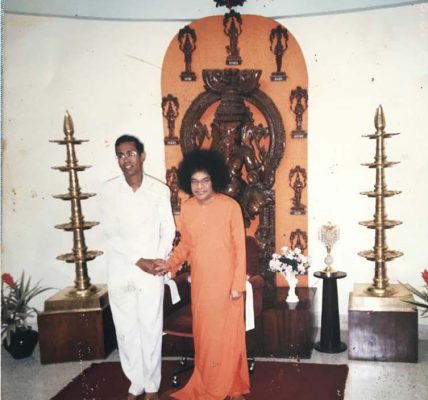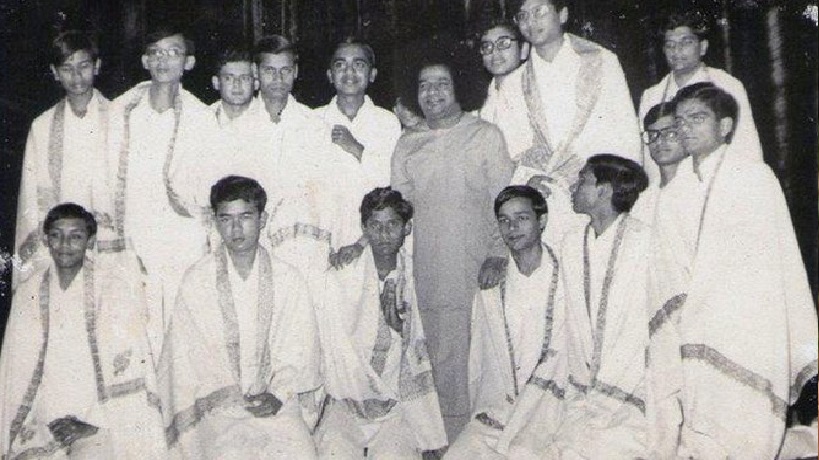Why values matter – an interview with Samir Bhatia
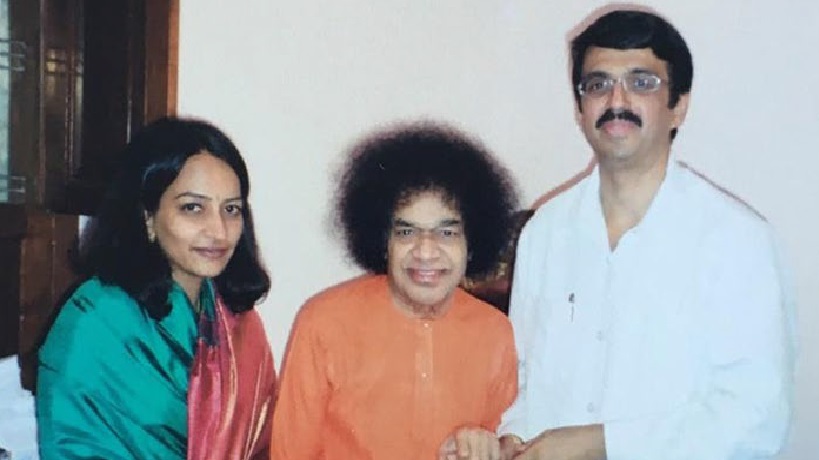
Shri. Samir Bhatia, Founder & CEO at SMEcorner (Digikredit Finance Pvt Ltd) shares interesting tips and insights for students and alumni of SSSIHL. In his illustrious career, Mr Bhatia has held several C-suite positions such as Country Head-Corporate Banking at HDFC Bank; MD India & Indian Ocean, Global Retail and Commercial Bank at Barclays Bank; MD & CEO at Equifax, Director at Hinduja Leyland Finance; Director at HDFC Securities, among many others. Mr Bhatia has worked with and mentored many of Swami’s students. In a free-wheeling discussion, Mr Bhatia takes us through his professional journey, how he manages conflicts in the workplace, what sets Sai Students apart, his love for animals, and his learnings at Swami’s lotus feet. Here are edited excerpts:
Q. Many of our students pursue professional courses after their BCom or MBA programmes. I saw your profile, where you mentioned an All India Rank of 7 in your CA exam. And, also you received the charter in a record time of three years. What tips would you like to share with the students to increase focus, while pursuing an additional programme along with a full-time job?
Answer: The students should pursue additional courses relevant to the job they are doing. This will enhance their learning and career opportunities. So, if you’re working as an analyst, you should get a CFA degree. If you’re in marketing, you must enrol for some digital marketing courses. I consider knowledge of technology vital to anybody’s career development. It will help to be well-rounded in learning about technology.
Q. Could you give some tips for time management, when the students are pursuing these additional courses.
Answer: It is always going to be a challenge to pursue these additional courses. Not all jobs give you the luxury to pursue an additional course. You should choose your employer accordingly; in case you have a choice. I wanted to pursue Cost Accounting along with CA. I was working with a very large CA firm, and when I told them I want to take leave to study, they did not allow. So, I left, and joined a mid-sized firm and told them up front that I’ll be needing some extra leaves around my exam. And they agreed. The job must allow you to do that.
Q. You have held a lot of leadership roles in your illustrious career. What qualities should students cultivate to have a fulfilling career?
Answer: The best thing that students bring to their respective organisations is the value system itself. I think while intelligence is important, value systems are much more important in the workplace. Value system encompasses your commitment to your job, the dedication with which you do the work, the way in which you interact with people around you. Going beyond your scope of work, ethics, integrity, how you influence society. These are extremely important and will get you extremely far ahead in life. Other things for the job could be learnt, a new skill by doing an additional course. But, honesty, integrity, commitment is primary to success.
Q. Have you ever felt conflicted at work? How did you resolve it?
Answer: Throughout our life, we are faced with choices and, we get tempted to pick the easier but the wrong choice. But, if your value systems are strong and it’s ingrained, then those conflicts don’t even come up. Then, it’s easy to decide what is the right choice. Given such an upbringing, I haven’t felt difficulty in making those choices at all. I think it comes naturally for a person who has lived with a basic value system inside.
Q. Apart from achieving professional expertise, you have also done a lot of volunteering work in animal welfare. Can you tell us what propelled you in this direction?
Answer: Right from my childhood, I always had a deep love towards animals. I used to do a lot of work even in my teenage years. I feel that animals are an often-ignored segment of our society. Very few organisations do work for those poor souls, who cannot express themselves.
Q. Based on your own experience of working with SSSIHL alumni, could you tell us what sets them apart.
Answer: Over the years, I have had the privilege of working with Swami’s students. I have hired, taught and mentored a lot of students. I again reiterate the core value system. The students that I worked with were extremely hard-working and dedicated. They were very straight in their dealing inside the organisation. The boys were loyal, they stayed on in the organisation for a very long period, instead of hopping jobs in pursuit of small hikes here and there. This is a big problem with a lot of youngsters, as they get lured by these hikes and remain unstable. In every organisation, HDFC Bank or Barclays, the difference to society that Swami’s boys made was evident. The students took up a lot of social work under the CSR initiatives of the firms. They made a very material difference. I don’t remember the names now, but the impact was there to be seen. In Barclays, they got the chairman award, for their contributions in the area of community service. They were called to London and given the special award. The quality of work, dedication, loyalty, commitment was there to be seen. Based on my experience, I have also expressed a desire in my current organisation that we hire more students from Swami’s Institute. So, we will hire more students from the Institute next year.
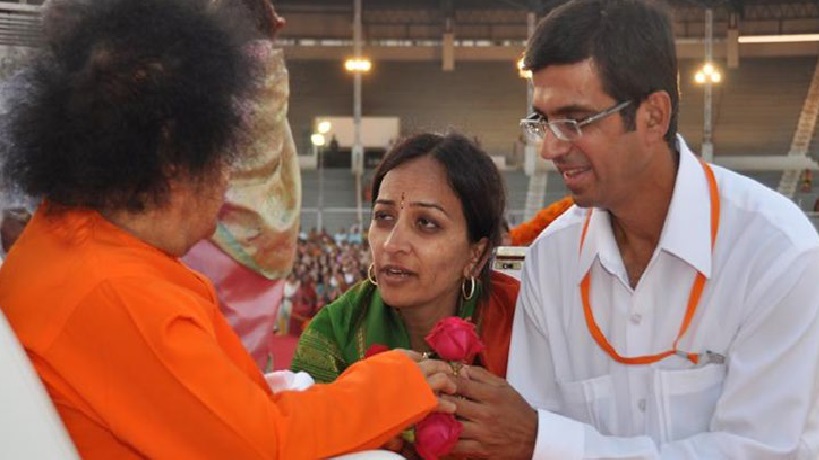
Q. Any additions to the current curriculum, that you suggest so that the students are better prepared for current day jobs.
A. I’ve been slightly out of touch with the Institute’s current curriculum. But, in today’s day and age, the students should be exposed to big data, data sciences kind of courses. The areas of machine learning, artificial intelligence etc. The students should have a good understanding of the latest technologies available today. AI is taking over the world, it will take over a lot of roles that the people are doing. I’m not saying it has to be a deep understanding, but a good understanding of latest developments will definitely help. In the last 6 months/ 1 year if the students can identify their top areas of interests, that will help them to cultivate skills in the right areas.
Q. This has been a very good discussion with you. We thank you for your valuable tips and insights.
A. Thank you, Sairam.
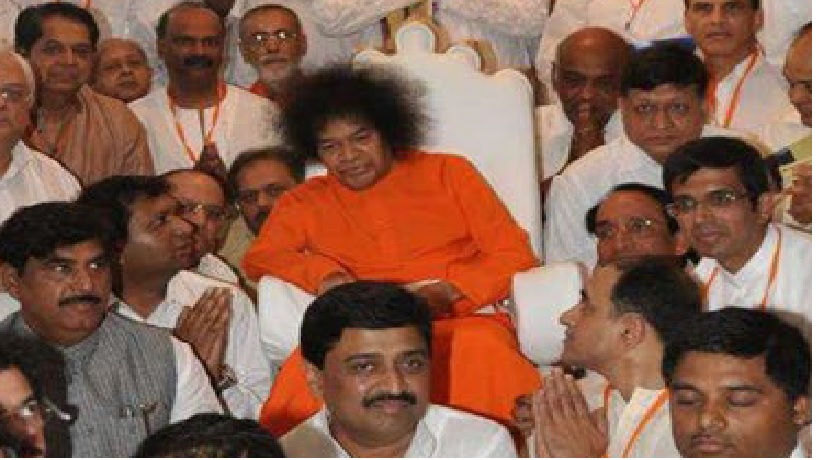
Gratitude corner – Dr Narahari
After almost four decades of magnificent service at His lotus feet, Dr Narahari retired from the Institute leaving being a flood of memories. He joined the department of Chemistry in 1981 and besides serving in the Institute, he was also in charge of the altar department which would take care of Swami’s chair, aarthi & other such things that were offered to Swami during darshan & Trayee sessions. He would be remembered for his impeccable memory and the ability to remember names of students graduated years ago. Brother Arun, a student of Sir from the yesteryears shares his thoughts.

Narahari Sir outwardly appears an introvert and enigmatic personality but when one watches him closely he is an endearing and inspiring Sai Students and Sai Teachers. He completely dedicated his life to Swami’s mission. Of all the qualities that students can learn from him, the one that has had a lasting impact on me is his undivided unshakeable dedication and devotion to Swami. In jest, Swami used to joke about his sight, his way of looking but if one looked closely his eyes were always directed at Swami’s lotus feet unwaveringly – a humbling lesson, indeed for life. Our batch had a special liking for him and those memories are what makes that time the golden era of our life. He remains an inspiration for us to this day and I would like to say that he is one of those amongst Swami’s students who lived (to paraphrase the Bible) in a way that one thought “ Swami made him in his own image “ . He truly lives and breathes Swami’s philosophy and will remain an eternal inspiration to students. Prayers for Swami’s choicest blessings for his long happy healthy prosperous and blissful life ahead.
Vidyullekha Team wishes him all the best & may Bhagawan continue to shower His Grace on Sir
Real Education by Prof Apparao M. Rao
Offering my most reverential pranams at the Lotus Feet of our Beloved Swami, I thank Him and the editorial team of Vidyullekha for giving me this opportunity to share the experiences I had through my interactions with the SSSIHL alumni. I had the good fortune of interacting with them through the Sri Sathya Sai Organization and Clemson University. Through their lessons learnt at His Feet, all of them left indelible and precious memories for the members of the Anderson Sai Center and Clemson University, both of which are located in the State of South Carolina, USA. The wide spectrum of strengths they brought with them – ranging from excellence in academics, music, interpersonal and organizational skills – continues to enrich our lives each day.
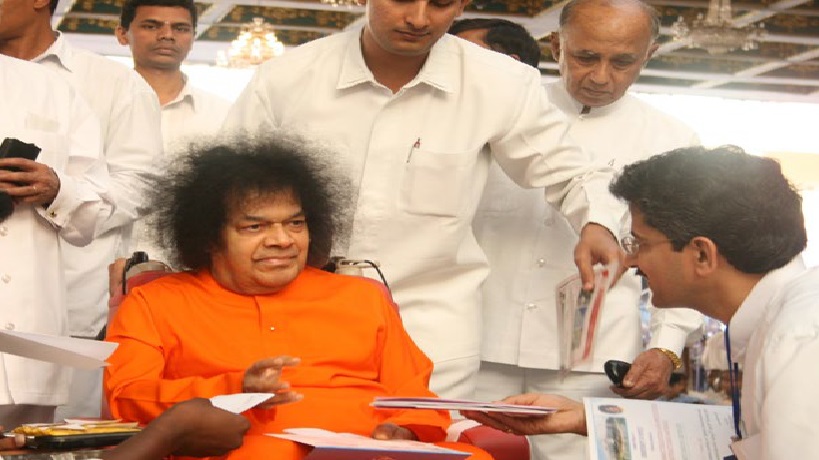
To date, more than two dozen SSSIHL alumni have interacted with my research team at Clemson University either through their long term or short term visits to Clemson University or through the World Wide Web. Largely through the dedicated efforts of one alumnus who is now employed as an Assistant Professor at Clemson University, and the research contributions from the rest, we collectively published about hundred scholarly research manuscripts in refereed journals, in addition to three book chapters, four review articles, and three patents. It will not be hyperbole for me say that the Clemson Nanomaterials Institute came into existence at Clemson University solely due to the efforts of the SSSIHL alumni. Some of their notable research breakthroughs include: (i) the development of a green synthesis method for highly efficient catalytic nanoparticles – this work received nearly 425 citations in the scientific community, and was also highlighted on the journal cover; (ii) the innovation of a new energy harvesting method – this work was published in one of the top scientific journals; and (iii) the development of better batteries for use in small electronic devices. These accomplishments highlight their love and devotion for Swami because they practised, and continue to practice what Swami has said in His Divine discourses to His students, viz., Knowledge, when skilled, leads to a balance which in turn provides insights about the application of knowledge for the benefit of society.
By His Grace, I am fortunate to be able to visit and interact with students, faculty and staff at SSSIHL on a regular basis. As a result, I have participated in or helped organize, several nanoscience and nanotechnology workshops/conferences at the SSSIHL, and treasure the moments when Swami blessed the participants either before, during, or after the workshop/conference. Pictured below is Swami blessing the a national workshop on the “Synthesis, Characterization and Applications of Nanostructured Materials”, Feb 27th – 28th, 2009, held at Department of Physics, Sri Sathya Sai University, Prasanthi Nilayam (flyer in the adjacent image). Specifically, Swami blessed the introduction of the M.Sc course in nanoscience and nanotechnology. On another occasion, during one of His afternoon darshan rounds, He lovingly asked the students “nano aṇṭe emiṭi? (what is nano)?” to which students offered several answers to the best of their abilities. Finally, when Swami heard one student respond that it was “chala chala chinna vastuvula sastram (the science of extremely small objects)”, He was pleased and continued with His darshan round.
Once as I was walking to the lecture hall at SSSIHL to teach a class, a student came running after me and sought my permission to carry my laptop bag. I politely replied, “Thank you my dear, but I am accustomed to carrying my own bag, and in the US everyone does their own work including driving their car, washing their dishes or doing their laundry”. In the meantime, a lecturer who was walking a few steps behind us caught up with us and requested that I hand my bag to the student, which I did hesitantly. Then the lecturer explained to me that Swami is very particular that His students uphold the Bharatiya culture of maatru devo bhava, pitru devo bhava, aachaarya devo bhava, atithi devo bhava (revere mother, father, guru and guest as God). At that moment, two profound thoughts came to my mind. Firstly, I realized how fortunate the SSSIHL students are to be blessed with learning that can liberate, or Sa Vidya Ya Vimuktye (real education results in liberation). Secondly, how much more beautiful and peaceful our world would be if only every educational institution across the globe implemented the Sai educational system. I also fondly recall the joy on the faces of SSSIHL students when their first joint research publication with Clemson University appeared in print in a scientific journal. Instead of them holding a copy of the published paper during darshan (which would provide them an opportunity to interact with Swami), they asked me to do so and prayed that Swami should come to me, interact with me, and accept the copy of the published paper. I was deeply moved by their selfless gesture, and sure enough, Swami answered their selfless prayers.
My interactions with the SSSIHL alumni reminds me of the qualities that Swami expects from an ideal Sai student: Students should possess the head of Shankara (symbolizing knowledge leading to wisdom), the hands of Janaka (symbolizing skills that are beneficial for the society), and the heart of Buddha (symbolizing compassion which balances the head with the hands). The SSSIHL alumni exuded such qualities during the study circles and service projects organized by the Anderson Sai Center. Not surprisingly, the study circles led by them were par excellence because they drew examples from their rich Sai experiences, and then underscored the lessons that Swami conveyed through such experiences. Most of the time the centre attendance for the study circle sessions was nearly 100% – thanks to the SSSIHL alumni for sharing their rich Sai experiences.
Often I am asked whether I am a student of Swami, to which I smile in response because I was not blessed with the opportunity to study at any of His institutions. However, someday, I hope to say “yes” since Swami has said that His student is the one who practices His teachings, and not necessarily the one who studied at one of His institutions. For the hopeful me, this is “work in progress”.
Prof Apparao M. Rao is Associate Dean for Discovery, College of Science, Director, Clemson Nanomaterials Institute, and R. A. Bowen Professor of Physics at Clemson University, South Carolina.

